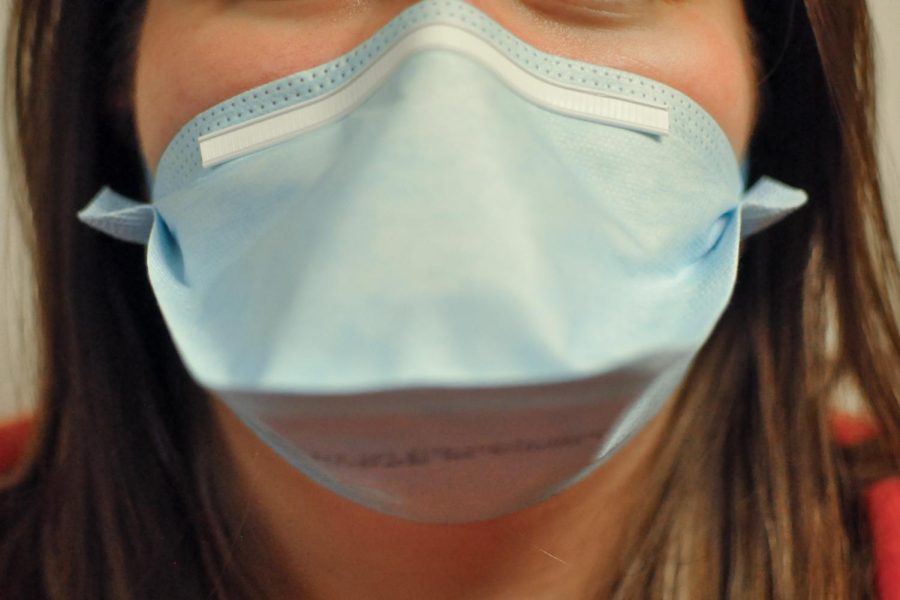UI recommends N95 masks, distributes them for free
Student Veronica Kucharczyk wears a N95 mask provided by University Housing. The N95 and KN95s are a more safer and the better recommended option for students.
Jan 31, 2022
Last updated on Feb. 11, 2022 at 10:14 a.m.
On Jan. 5 the University announced the recommendation to all faculty, staff and students to wear an N95, KN95 or level 3 surgical mask.
According to Awais Vaid, Champaign-Urbana Public Health District deputy administrator, the manufacturer is the main difference between N95 masks and KN95’s. The N95’s are U.S. regulated, while the KN95’s are made in China.
The N95 and KN95 masks are a better and safer option because they have both fit and filtration according to professor Rebecca Smith, epidemiologist and member of the COVID-19 SHIELD team.
“The fit has to do with how tightly to your face it goes and doesn’t have any gaps that the air can go through,” Smith said. “The surgical mask has better filtration, and filtration has to do with the materials that are in it.”
Get The Daily Illini in your inbox!
According to the FDA, a grade one surgical mask does not prevent the transmission of small particles from coughing or sneezing. An N95 respirator is effective in blocking those airborne particles.
Vaid said that N95 masks are the “highest quality masks.”
“A good quality cloth mask will be anywhere between 70 to 90% effective, and an N95 mask is higher than 97, 98% effective,” Awais Vaid said.
The University began handing out one N95 mask per person for free at the start of the spring semester.
These masks are being recommended and provided now because the Omicron variant is more infectious and N95’s are available.
“Supply chain problems have meant that N95’s, KN95’s were really hard to get a hold of for a very long time,” Smith said.
The masks were reserved for the health care system, but now they are available to everyone.
Allison Vance, director of Institutional Communications, said the distribution of N95 masks will allow students to try them before switching to them.
The University spent $35,000 for 50,000 N95 masks.
“We used COVID-19 funds based on guidance from our SHIELD team and CUPHD about the additional protection these masks provide to maximize the safety of our community,” Vance said in an email.
According to Smith, it’s not always necessary to wear an N95 mask and it’s advised that you evaluate when you need one.
“You can use it when you think it would be of most use, which is when you’re in crowded areas and indoors…And absolutely, when going to class, do yourself a favor,” Smith said.
Vaid said N95 masks can last for days, and there are even ways to clean and sanitize them.
Kendall McFarlin, freshman in LAS, either wears an N95 mask or a level 3 surgical mask depending on how many people she will be around. McFarlin also went and picked up the N95 mask.
“I think anything that we can do, honestly is a good idea, especially since (the University is) providing students with something that… sounds like it’s been proven that they work better,” McFarlin said.
McFarlin thinks the University has done a good job with handling COVID-19 and is in favor of them implementing testing every other day.
“One of my professors was talking about it saying that if you’re vaccinated, boosted and then you go get tested every other day, you’re just having an extra security net and it really doesn’t take that long,” McFarlin said.
Since counterfeit N95 masks continue to circulate, a reliable source to purchase an N95 mask from is a nonprofit organization called Project N95. They offer legitimate masks in different types and sizes.
“A mask is only as good as how well it is worn,” Vaid said.






